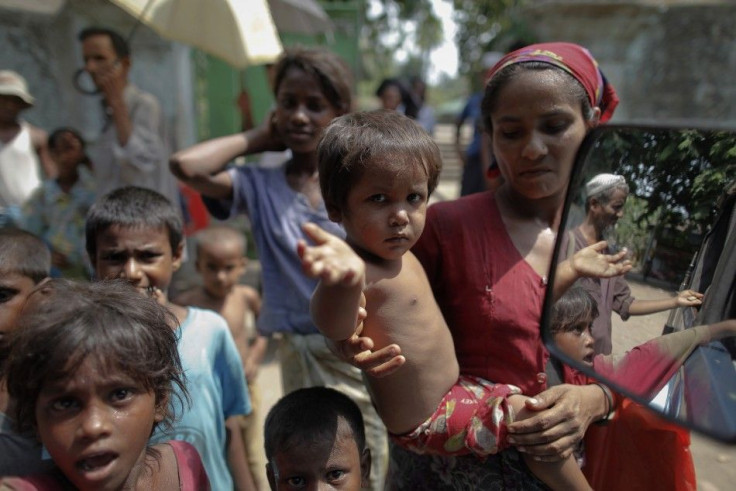Myanmar's Internal Commission To Probe Clashes Between Buddhists And Rohingyas

The Myanmar government has set up a 27-member commission to probe the recent sectarian violence that killed dozens and displaced tens of thousands in the western state of Rakhine along the Bangladesh border, state media reported.
The presidential office on Friday issued order to form an internal commission, which includes religious leaders, artists and former dissidents and is headed by Myo Myint, retired director-general of the Ministry of Religious Affairs, the Chinese news agency Xinhua reported.
The commission was set up to submit proposals for ending the conflict and to find ways for harmonious coexistence between people belonging to different faiths. President Thein Sein highlighted the need to form an independent commission that does not include foreigners, a CNN report said. The commission will present its findings on Sept 17.
UN Chief Ban Ki-moon welcomed Myanmar's decision to form a commission to investigate the violence.
"This Commission is comprised of a representative cross-section of national figures in the country," said a statement issued Friday by Ban's spokesperson.
"It could make important contributions to restoring peace and harmony in the state and in creating a conducive environment for a more inclusive way forward to tackle the underlying causes of the violence, including the condition of the Muslim communities in Rakhine. This will be integral to any reconciliation process."
Recent tensions between Buddhists and Rohingya Muslims in Rakhine left at least a dozen civilians dead and hundreds of homes destroyed, as well as at least 64,000 people displaced, the UN statement said.
The Myanmar government declared a state of emergency in Rakhine State on June 10, a week after the outbreak of communal sectarian violence. Remote Rakhine is an area known for incidents of sectarian violence between the Buddhist residents and the Muslim minority.
Communal tensions had continued to flare in western Myanmar several weeks into the declaration of the state of emergency even as targeted attacks and human rights violations by the security forces against the minority community of the Rohingya and other Muslims increased, according to human rights watchdogs.
Myanmar's Border Security Force (Nasaka), the army and the police had been conducting massive sweeps in the area, leading to the arrest of hundreds of people, some of whom were subjected to ill-treatment, said Amnesty International in a report published July 20.
The violence subsided two weeks after the declaration of emergency, during which at least 78 people were killed and thousands of homes belonging to both communities were torched, according to a report by Myanmar's National Human Rights Commission published July 11. Unofficial estimates of casualties exceeded 100, Amnesty said.
The human rights watchdog said that abuses against the Rohingya and other Rakhine Muslims included physical violence, rape, destruction of property and unlawful killings carried out by the Rakhine Buddhists and the security forces.
Buddhists comprise 89 percent of Myanmar's population while Muslims represent four percent. The Muslim minority consists of the Rohingya people and the descendents of Muslim immigrants from neighboring India, Bangladesh, China and early Arab and Persian settlers.
© Copyright IBTimes 2024. All rights reserved.






















